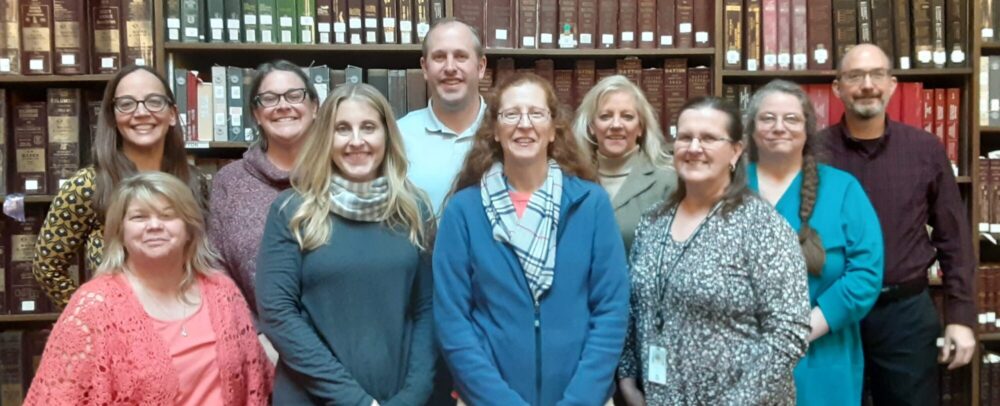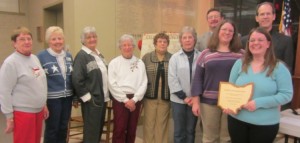When local governments records are not properly safeguarded or made accessible to the public…
- legal rights are jeopardized
- citizens are separated from their past
- government work is shrouded in mystery and doubt
- vital records languish abandoned and neglected
Fewer than one-quarter of Ohio’s 88 counties have archives, records centers, or records management programs. Those few that do often lack adequate and sustainable funding to provide acceptable levels of staffing, environmentally sound structures to preserve records, state-of-the-art equipment to make records available, and space for research and reference services.
Records management responsibility too often becomes “other duties” assigned to untrained staff. Few local governments have the luxury of a position specifically to manage records and care for archives. Opportunities for training and professional development are few and expensive. Staff members burn out. Their turnover robs governments of institutional memory.
The Opportunity
Ohio’s Public Records Act (Ohio Revised Code Sect. 149.43) makes government more accessible to the people. It requires that all public records be available to view and copy. The records must be organized and kept in a way that permits access by everyone. Proper records training is key to fulfilling the law’s goal.
A Clermont County citizen was brought to tears after locating her grandfather’s divorce record. It settled a long disputed rumor that could never have been put to rest without the written record. She later expressed thanks to the county commissioners for the good work of the records center. Many local government workers across Ohio are grateful for records center holdings when they seek decades-old payroll records to guarantee they receive correct retirement income. Such stories are repeated daily throughout Ohio as local archives and records centers offer research and reference services to eager constituents.
Ohio’s Local Records
Local records created by Ohio’s county, municipality, and township governments document
- vital statistics (birth, marriage, and death)
- land ownership
- verification of taxes owed and paid
- infrastructure performance and safety
- unique stories about our ancestors’—and our own—history
- and much, much more
Local records make it possible for governments—and the citizens they serve—to remember the past, conduct business in the present and inform the future. Preservation of records and access to them make government transparent and more efficient.
How You Can Help!!!
- Contact the Governor and your Ohio General Assembly representative to share concerns about the preservation and accessibility of local government records.
- Contact your representatives in Congress to express support for the Preserving the American Historical Record (PAHR) legislation.
- Volunteer at your state or local records centers or archival repositories.
- Form coalitions with other Ohioans (historians, genealogists, and preservationists) to strengthen your numbers and allow your voices to be heard.
These are your records. This is your history. Help safeguard the past by getting involved in the present. Our future depends on it.
Download an electronic version of this brochure.
For more information
Ohio Historical Society
1982 Velma Avenue
Columbus, Ohio 43211
614.297.2300
800.686.6124
[email protected]

